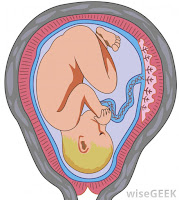Checklist for your new born baby
CLOTHES 2 pcs Cardigans 4 pcs T-shirts (long-sleeve and short-sleeve) 4 pcs Trouwsers (footed and not) 6 pcs Vest 6 pcs Baby grows (cotton and short-sleeve) 1 pc shawl 2 pcs baby hat 1 pc scratch mittens 6 pcs pair of socks 2 pcs swaddle blanket 1 pc jacket BATHING Baby bath tub Bath thermometer 2 pcs large soft hooded towels Grooming kit (comb, nail clippers) Soft sponge Baby shampoo, oil and lotions Slip resistant bath mat 4 pcs wash cloths Cotton wool balls and cotton buds Bathing toys such as Rubber Ducky BREASTFEEDING 3 pcs Nursing Bras Breast pump Breast pads Breast Milk storage bottle Nursing Pillow Privacy Shawl Nipple Lotion Nipple Shield BOTTLE FEEDING 6 pcs bottles with teats 6 pcs soft bibs Bottle brush Sterilizer (microwave or boiling) Bottle warmer Bottle Drying Rack DISPOSABLE NAPPIES Baby wipes Nappy Bag ( for traveling purpose) Changing mat and cover Diapers HEALTHY & SAFETY Ear Thermometer ...
